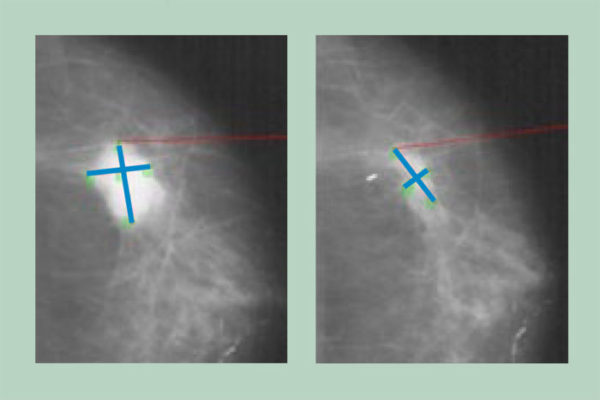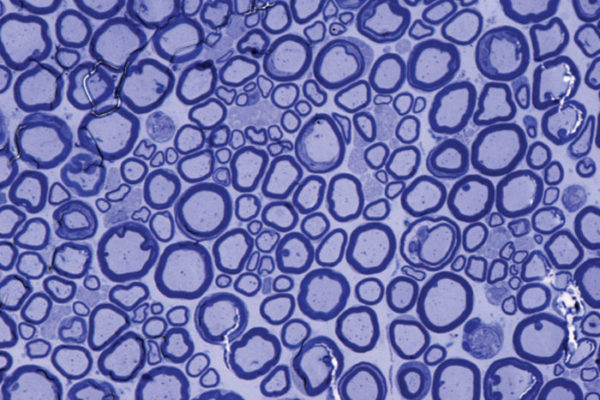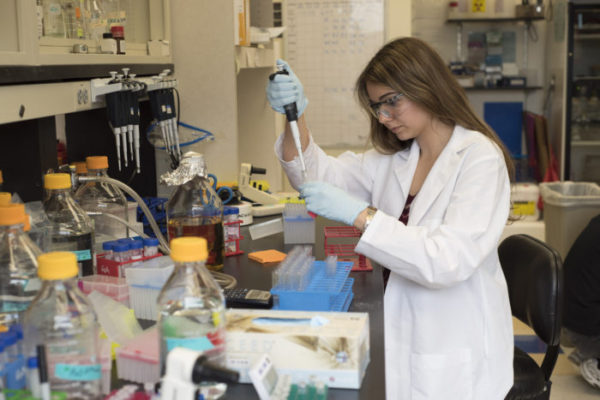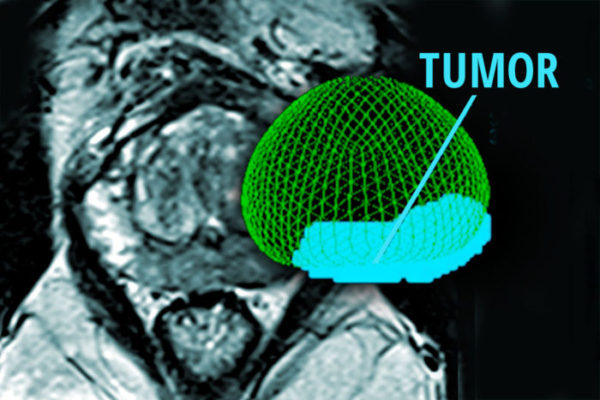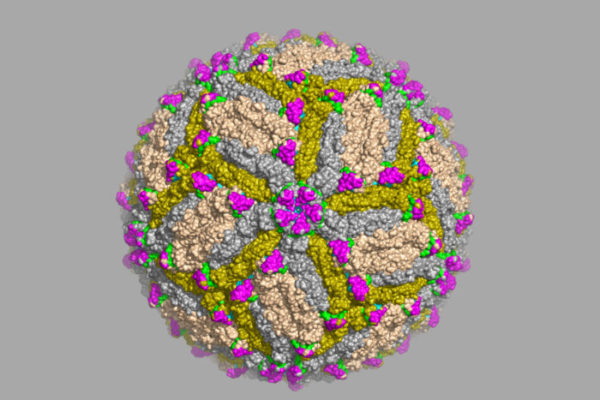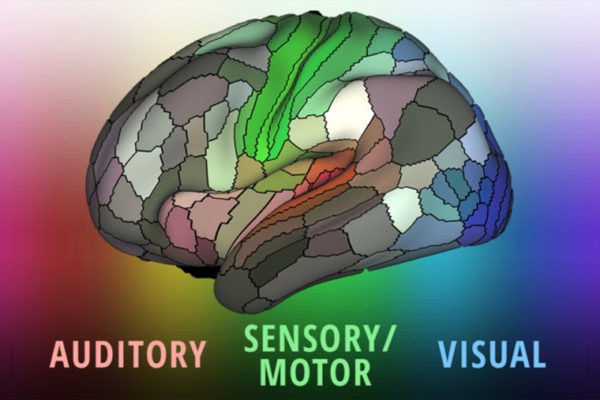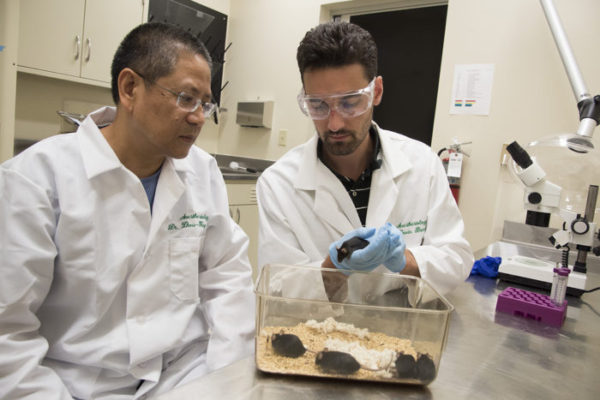New study shows breast tumors evolve in response to hormone therapy
Researchers at The McDonnell Genome Institute at the School of Medicine have co-led a study on breast tumors — before and after hormone reduction therapy. It reveals the extreme genetic complexity of these tumors and the variety of responses that are possible to estrogen-deprivation treatments.
Beneficial role clarified for brain protein associated with mad cow disease
Studying mice and zebrafish, researchers from the School of Medicine and the University of Zurich have shown that the proteins associated with Mad Cow Disease — when properly folded — play a vital role in nerve cell function.
High school student awarded for work on Ebola protein from bats
St. Louis area high school student Rachel Neff helped Gaya Amarasinghe, associate professor of pathology and immunology at the School of Medicine, design a project focusing on a protein called VP35 found in both the Ebola virus and the bat genome.
Study finds marker of aggressive prostate cancer
The level of a specific molecule present in prostate tumors is an indicator of whether the cancer is aggressive and likely to spread, according to new research from the School of Medicine.
Use of internet in medical research may hinder recruitment of minorities, poor
A study led by researchers at the School of Medicine find that, even in this internet age, explicit efforts must be made to increase engagement among under-represented groups or current health-care disparities may persist.
Antibodies identified that thwart Zika virus infection
Scientists at the School of Medicine have identified antibodies capable of protecting against Zika virus infection, a significant step toward developing a vaccine, better diagnostic tests and possibly new antibody-based therapies.
Study identifies neural circuits involved in making risky decisions
New research from the School of Medicine sheds light on what’s going on inside our heads as we decide whether to take a risk or play it safe.
Doctors paid by drug companies more likely to use those companies’ meds
Ophthalmologists who receive money from pharmaceutical companies are more likely to prescribe medications promoted by those companies than similar drugs that are less costly, a new School of Medicine study shows.
A detailed map of how the brain is organized
A detailed new map by researchers at the School of Medicine lays out the landscape of the cerebral cortex – the outermost layer of the brain and the dominant structure involved in sensory perception and attention, as well as distinctly human functions such as language, tool use and abstract thinking.
Potential new target identified for treating itch
School of Medicine researchers have found how sensory nerve cells work together to transmit itch signals from the skin to the spinal cord, where neurons then carry those signals to the brain. Their discovery may help scientists find more effective ways to make itching stop.
Older Stories
